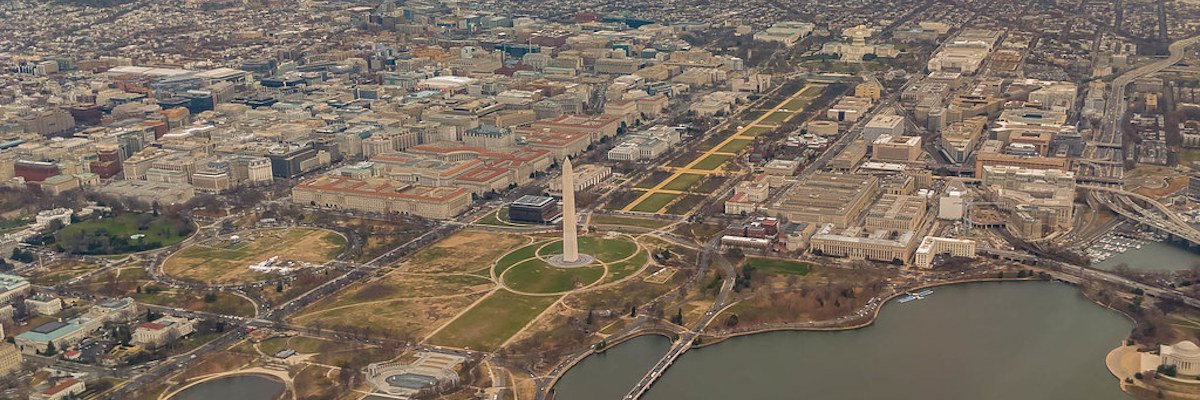Every week, MuckRock brings to you this roundup of transparency and accountability battles, threats and wins. Have you recently read a news story about why government transparency — or a lack of it — still matters? Let us know, and we could include it in our next roundup!
In the three weeks since President Trump declared a national emergency in response to COVID-19 FOIA offices are beginning to adjust. The MuckRock team has been working on ways to track different aspects of the country’s response.
We understand that processing delays are inevitable and while being flexible we will be vigilant as ever about how request processes are transitioned and the crucial importance of open government for public trust during this uncertain time. You can see the updates of which we’re aware on the page Transparency changes in records requests.
Variation in federal FOIA telework
The Congressional Research Service put together a brief report last Friday on recent changes to federal FOIA processes. The office noted a couple important details — FOIA offices are still considering expedited requests and some are more prepared for remote work conditions than others — and provided the most recent statements from a fraction - just 13 - of the FOIA offices.
There can be a lot of variation in how any particular office staffs and handles requests. The State Department, for example, relies heavily on retired foreign service officers, many of whom are currently at high risk for contracting COVID-19 and are not set up for remote work, leaving the agency without 96% of its team at last count. You can read more on Politico. The FBI has a file system only accessible from within the building, and through the end of March, most of the team was not working and requests could only be submitted by mail. They’ve since begun accepting requests via the eFOIPA portal again.
In response to MuckRock’s own effort to understand how offices are responding, we’re reaching out to FOIA offices. Alecia Bolling from the Army that its offices have been limited to “mission-essential personnel” and that telework has been implemented in some cases. “This means that we are unable to handle requests sent via traditional methods,” Bolling wrote, “and can only respond to electronic inquiries while under elevated HPCON levels.”
Meanwhile, FOIA requesters on Twitter are giving a lot of love to the Securities and Exchange Commission, the reigning champion of MuckRock’s annual FOIA March Madness event (suspended this year).
Agreed. The SEC #FOIA office is nailing it right now. We might disagree with their interpretation of the law, and often do. But the taxpayer can feel good this group of otherwise unseen government employees are staying productive for them. Heads-up @SEC_News https://t.co/4FwrJSiY5p
— Probes Reporter® (@probesreporter) April 3, 2020
The measures of an emergency
Our data reporter Katlyn Alo has been working to collect local and state emergency measures being declared across the U.S. These will eventually be released as a set for public use, and in the meantime, you can contribute to the project by sending us the emergency measures and actions you learn about.
We’ve also been focused on how we’ll advance our enterprise reporting during COVID-19 reporting. Immediately, we’re particularly interested in how surveillance technology will be used, how detention facilities are planning, and the inability to access water that still exists for many individuals.
Have suggestions for other issues that need a transparency boost at this critical time? Reach out.
Wins this week
Lansing City Pulse successfully appealed a denial from the East Lansing Police Department, which had refused to release video and reports related to an allegation of police brutality, claiming that the disclosure would interfere with an ongoing investigation.
“It seems to me that at least portions of the videos can be released without interfering with the State Police investigation,” East Lansing Mayor Ruth Beier told City Pulse of her decision on the appeal.
While some agencies have been allowed to pause their public records responses as part of emergency measures, there are still hardworking municipal FOI folks out there trying to fulfill their duties to the people.
Honolulu Police said they will continue to answer public records requests, despite governor suspending the open records law. She said it might be delayed, but they'll respond. #covid19 #foia
— Christina Jedra (@ChristinaJedra) March 31, 2020
Is there a FOIA or records office you think deserves a little praise for their work in this time? Let us know.
Fresh transparency threats
Each year, the Department of Defense creates a forwarding facing review of its projected operational needs and programs as part of the Future Years Defense Program, but now it wants to drop requirements to provide a public version to oversight bodies — the Congressional Research Service, the Congressional Budget Office, the Comptroller General, and Congress itself — and “to certify the accuracy of the input to the FYDP.” “At a time when it is clear to everyone that US national security spending is poorly aligned with actual threats to the nation, the DoD proposal would make it even harder for Congress and the public to refocus and reconstruct the defense budget,” wrote Steven Aftergood, who directs the Project on Government Secrecy at the Federation of American Scientists.
Image, “Washington Monument and the National Mall” by ctj71081 is licensed under CC BY-NC 2.0




